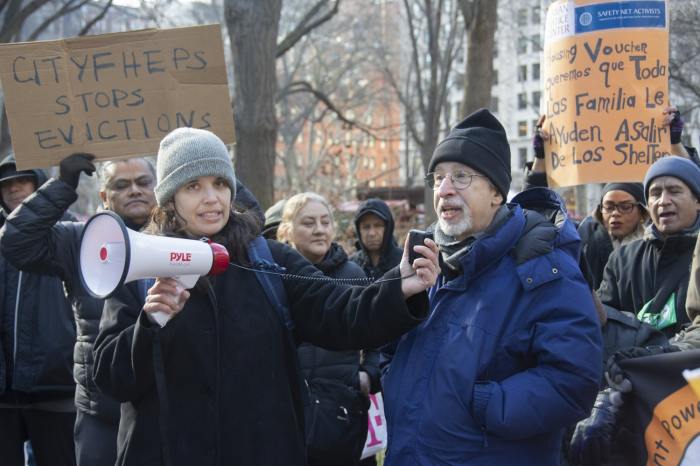The Trump administration last week extended “best wishes to the people of Haiti as you celebrate the 214th anniversary of Haiti’s independence.
“The United States and Haiti share a long history of close relations, and our futures are even more closely linked through the nearly one million Haitian-Americans who contribute to both American prosperity and the economic growth of Haiti,” U.S. Secretary of State Rex W. Tillerson said in a statement.
“We acknowledge the tremendous strides Haiti has made over the last year,” he added, stating that the inauguration of President Moïse in February, and the work Haiti is undertaking to stabilize its electoral system going forward, “can reaffirm the Haitian people’s commitment to democracy, human rights, and the rule of law.”
Tillerson also noted “significant progress in security, and commend Haiti’s efforts to develop its agricultural sector.
“As a longstanding friend and partner, the United States remains committed to supporting Haiti as it strives to increase economic growth and investment, unlocking its full potential,” he affirmed.
Tillerson’s statement comes as many Haitians in the United States have expressed outrage over President Donald Trump’s alleged disparaging remarks about Haitians.
“As a proud #Haitian-American elected & an adoptee of the #Nigerian community, I’m disgusted by alleged remarks made by @realDonaldTrump on Haitians having #aids & #Nigerians livin n huts,” tweeted New York State Assemblymember Rodneyse Bichotte, the daughter of Haitian immigrants, on Christmas Day.
“I condemn his remarks if tru & demand an apology,” said Bichotte, the first Haitian from New York City to be elected to New York State Assembly, who represents the 42nd Assembly District in Brooklyn.
The Harlem, New York-based Haitian Roundtable (HRT) — an organization comprising Haitian-American professionals who said they are committed to civic engagement, as well as philanthropic endeavors benefiting Haiti, Haitian organizations and causes — also denounced, as “reprehensible” Trump’s alleged remarks.
“AIDS is a pandemic that cannot be combatted by perpetuating stereotypes, as evidenced in the 1980s, when the CDC (Atlanta, Georgia-based Center for Disease Control and Prevention) wrongfully maintained that Haitians constituted a ‘high-risk’ group for HIV-AIDS,” HRT said in a statement. “Unfortunately, President Trump has a track record of incendiary statements about communities of color who make America great.
“Haitians have contributed to America since its inception — from the volunteers who fought alongside the American rebels in the Battle of Savannah in 1779, to the founder of Chicago, to the thousands of doctors, lawyers, musicians, teachers and other hard-working Haitians who help make a better America every day,” it added.
“If the New York Times report is accurate, this behavior is beneath the dignity of the Office of the President,” HRT continued.
The Times reported last week that Trump exploded with vitriolic and racist comments, in a heated White House meeting with his top policy advisors in June in attempting to advance his immigration agenda, saying that all Haitians have AIDS and mocking Nigerians.
According to six officials who attended or were briefed about the meeting, the paper said Trump then began reading aloud from a document, which his domestic policy adviser, Stephen Miller, had given him just before the meeting.
The document listed how many immigrants had received visas to enter the United States in 2017, the Times said.
It said more than 2,500 were from Afghanistan, a terrorist haven, the President complained.
Haiti had sent 15,000 people, the Times said.
‘“They ‘all have AIDS,’” the paper said that Trump grumbled, basing its information on “one person who attended the meeting and another person who was briefed about it by a different person who was there.”
But White House press secretary Sarah Huckabee Sanders denied to the Times that Trump had made derogatory statements about immigrants during the meeting.
“General Kelly, General McMaster, Secretary Tillerson, Secretary Nielsen and all other senior staff actually in the meeting deny these outrageous claims,” she said, referring to the current White House chief of staff, the national security adviser and the secretaries of state and homeland security, respectively. “It’s both sad and telling The New York Times would print the lies of their anonymous ‘sources’ anyway.”
But the Times said while the White House did not deny the overall description of the meeting, it said officials “strenuously insisted” that Trump never used the words “AIDS” or “huts” to describe people from any country.
Several participants in the meeting told Times reporters that they did not recall the president using those words and did not think he had, but the paper said “two officials who described the comments found them so noteworthy that they related them to others at the time.”
Trump’s alleged remarks also come as myriad politicians and community activists in the U.S. have denounced his administration’s decision to deport nearly 60, 000 Haitians living in the country under Temporary Protected Status (TPS).
Last month, black Democratic Congressional leaders joined Caribbean legislators in expressing outrage over the decision.
U.S. Department of Homeland Security (DHS) Acting Secretary Elaine Duke said she made the decision to terminate the TPS designation for Haitians, with a delayed effective date of 18 months, “to allow for an orderly transition before the designation terminates on July 22, 2019.”
But U.S. Congresswoman Yvette D. Clarke, the daughter of Jamaican immigrants and chair of the Congressional Black Caucus (CBC) Immigration Working Group, Congressman John Conyers of Michigan, House Judiciary Committee Ranking Member, and Congressman Cedric Richmond of Louisiana, CBC chairman, said, in a joint statement, that they were outraged by the decision that now forces the Haitian immigrants to return home.
They noted that the massive earthquake in the French-speaking Caribbean country killed more than 300,000 people in 2010, disrupted the function of civil society, displaced families from their homes, closed schools and social service agencies, created instability in the government and undermined the economy.
The black Congressional leaders said these conditions were exacerbated by the cholera epidemic, subsequent hurricanes and food insecurity crisis, “which continues to this day.”
Bichotte told Caribbean Life that she was “equally saddened and angered” by the decision.
“For anyone who has been to Haiti in recent months, it is clear that the administration’s decision does not coincide with the dangerous reality on the ground,” she said. “The return of tens of thousands of people is only going to make conditions worse.”
According to the New York Immigration Coalition, about 5,200 Haitians with TPS live in New York City and about 59,000 in the United States since the massive earthquake.
For some Haitians who had entered the country illegally or overstayed visas, TPS allowed them an opportunity to live and work openly, the Times said.
























